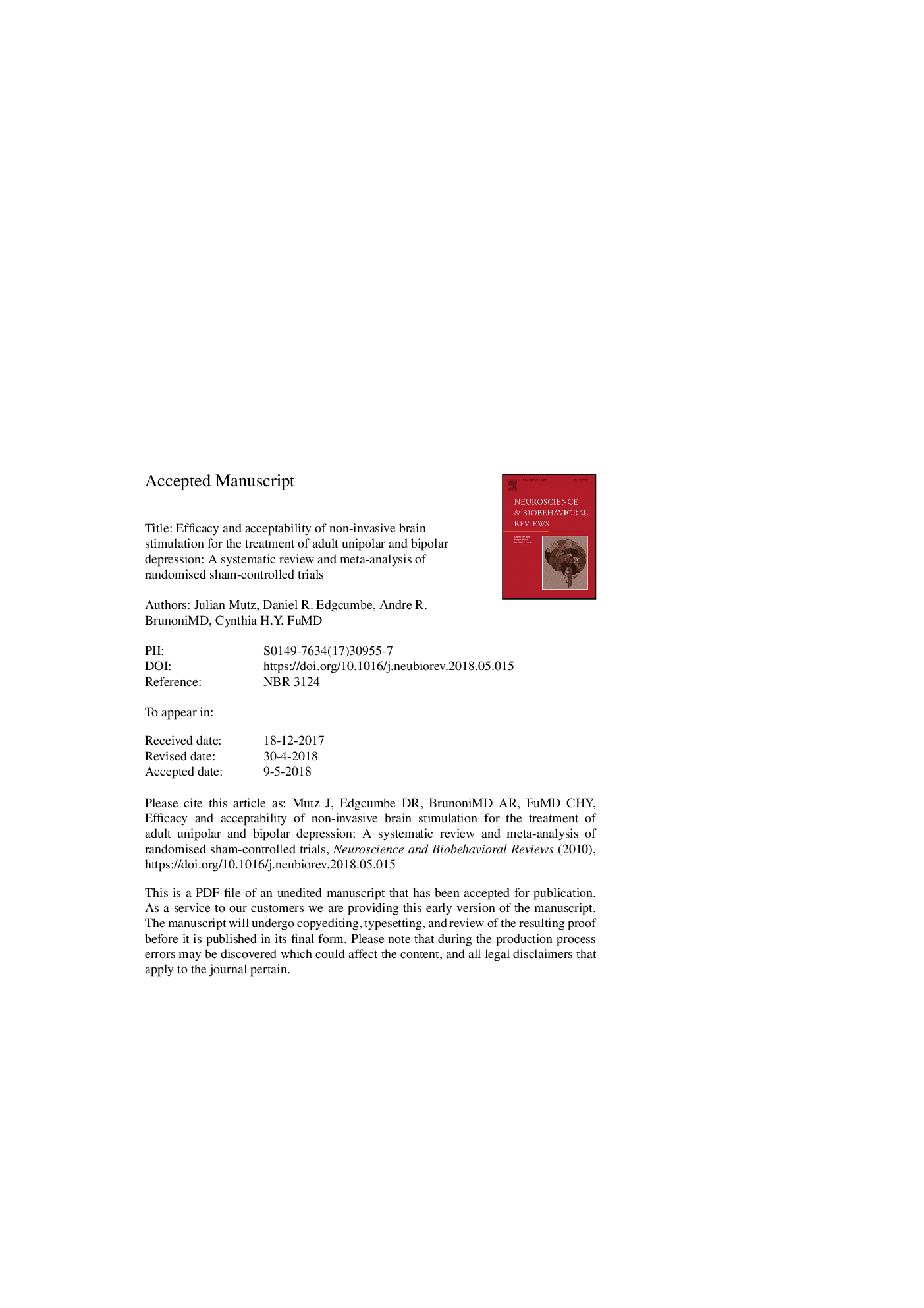| Article ID | Journal | Published Year | Pages | File Type |
|---|---|---|---|---|
| 7301664 | Neuroscience & Biobehavioral Reviews | 2018 | 52 Pages |
Abstract
We examined the efficacy and acceptability of non-invasive brain stimulation in adult unipolar and bipolar depression. Randomised sham-controlled trials of transcranial direct current stimulation (tDCS), transcranial magnetic stimulation (TMS) and theta-burst stimulation (TBS), without co-initiation of another treatment, were included. We analysed effects on response, remission, all-cause discontinuation rates and continuous depression severity measures. Fifty-six studies met our criteria for inclusion (Nâ¯=â¯3058, mean ageâ¯=â¯44.96 years, 61.73% female). Response rates demonstrated efficacy of high-frequency rTMS over the left DLPFC (ORâ¯=â¯3.75, 95% CI [2.44; 5.75]), right-sided low-frequency rTMS (ORâ¯=â¯7.44, 95%CI [2.06; 26.83]) bilateral rTMS (ORâ¯=â¯3.68,95%CI [1.66; 8.13]), deep TMS (ORâ¯=â¯1.69, 95%CI [1.003; 2.85]), intermittent TBS (ORâ¯=â¯4.70, 95%CI [1.14; 19.38]) and tDCS (ORâ¯=â¯4.17, 95% CI [2.25; 7.74]); but not for continuous TBS, bilateral TBS or synchronised TMS. There were no differences in all-cause discontinuation rates. The strongest evidence was for high-frequency rTMS over the left DLPFC. Intermittent TBS provides an advance in terms of reduced treatment duration. tDCS is a potential treatment for non-treatment resistant depression. To date, there is not sufficient published data available to draw firm conclusions about the efficacy and acceptability of TBS and sTMS.
Keywords
Related Topics
Life Sciences
Neuroscience
Behavioral Neuroscience
Authors
Julian Mutz, Daniel R. Edgcumbe, Andre R. Brunoni, Cynthia H.Y. Fu,
